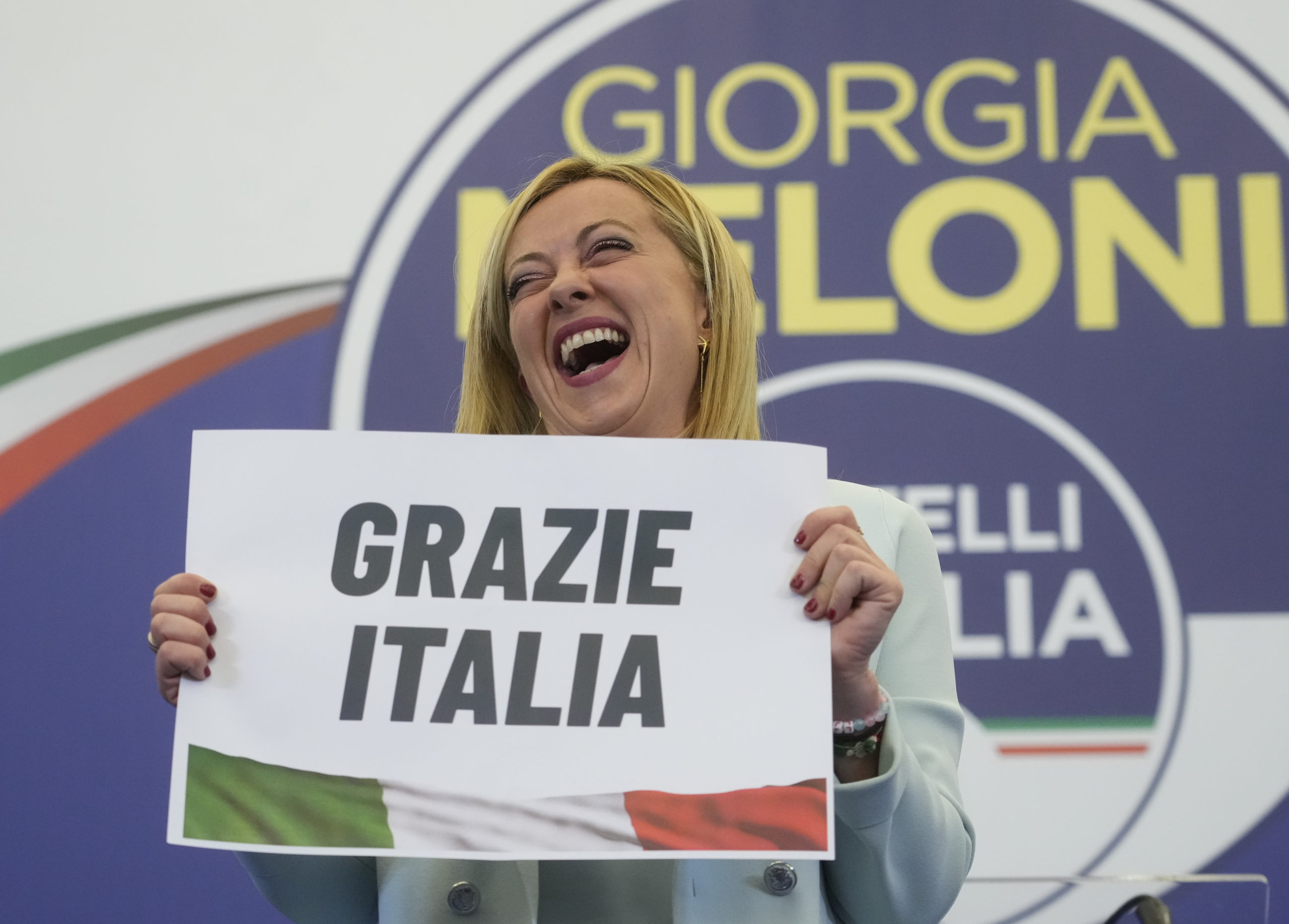 1
1 1
1
ROME (AP) — The European Commission signed off Tuesday on the next 21-billion-euro ($20.2 billion) tranche of Italy’s pandemic recovery funds, a welcome infusion that comes amid questions about whether Giorgia Meloni and her euroskeptic party, which won the national election, will be able to keep the funding coming.
The outgoing government of Premier Mario Draghi, a former European Central Bank chief, secured the funds after having achieved 45 milestones required by Brussels to receive the money. They included enacting reforms of public administration, education and health care, and investments in technology, research, tourism and culture. A first allotment of 21 billion euros, also tied to reforms and investments, was transferred to Italy in April.
Italy received the largest share of the European Union’s recovery fund, around 191.5 billion euros ($185 billion), since it was the European country hardest hit financially by the pandemic’s first wave, when the government shuttered nonessential industry. Draghi made hitting the EU-mandated milestones a hallmark of his 18-month national unity government, which collapsed in July when key allies boycotted a confidence vote.
Meloni’s Brothers of Italy, which has its roots in a neo-fascist party and campaigned on a nationalist program, won 26% of the vote. It is poised to lead a center-right coalition government alongside the anti-immigrant League with roots in Italy’s productive north and the Forza Italia party of ex-Premier Silvio Berlusconi.
Meloni’s victory lurched Italy, a founding member of the EU and its third-largest economy, sharply to the far-right, and was cheered by other euroskeptic leaders in France and Spain who have also made electoral gains in recent months.
Italy has in the past failed to capture all EU funding allocated to it, raising concerns over whether Meloni’s inexperience in government would hamper Italy going forward, especially given that Draghi’s solid reputation in Brussels was so crucial to the country being awarded so much.
The EU funds helped propel Italy to 6% growth last year, which is slowing to around 3% this year with the impact of inflation and high energy costs.
“Obviously, paying the debt is the priority, but mostly now the focus is going to be toward this next generation EU plan, whether Italy is going to fulfill the plan and all the reforms,” said Pierpaolo Benigno, professor of Economics at University of Bern. “The market is going to watch all the progress towards this fulfillment.”
Agnese Ortolani, senior analyst at the Economist Intelligence Unit, said she expected a Meloni-led government would do what it takes to get the next tranche, of 19 billion euros ($18.3 billion).
“Despite some internal disagreements, the right-wing coalition committed to adhere to the NRRP in its electoral manifesto, with some revisions to adapt the plan to the new economic context of the energy and cost-of-living crises,” she said in a note, referring to the National Recovery and Resilience Plan.
Meloni’s political opponents have protested her plans to reallocate some of the EU’s Next Generation euro funds, but analysts are less alarmed.
“This is par for the course,″ said Holger Schmieding, chief economist at Berenberg. “The EU may be open to some changes as to how the money is used as long as Meloni implements the modest pro-growth reforms the EU demands as a precondition.”
European Commission President Ursula von der Leyen said the new approved funding was evidence that Brussels believed Italy had made good progress in its promised reforms. Von der Leyen, who in recent days issued a veiled warning against any democratic backsliding in Italy under a far-right leadership, encouraged further work.
“So congratulations, Italia, and keep up the good work! The Commission stands by you on your way to recovery,” she said in a statement.
___
Colleen Barry reported from Milan.